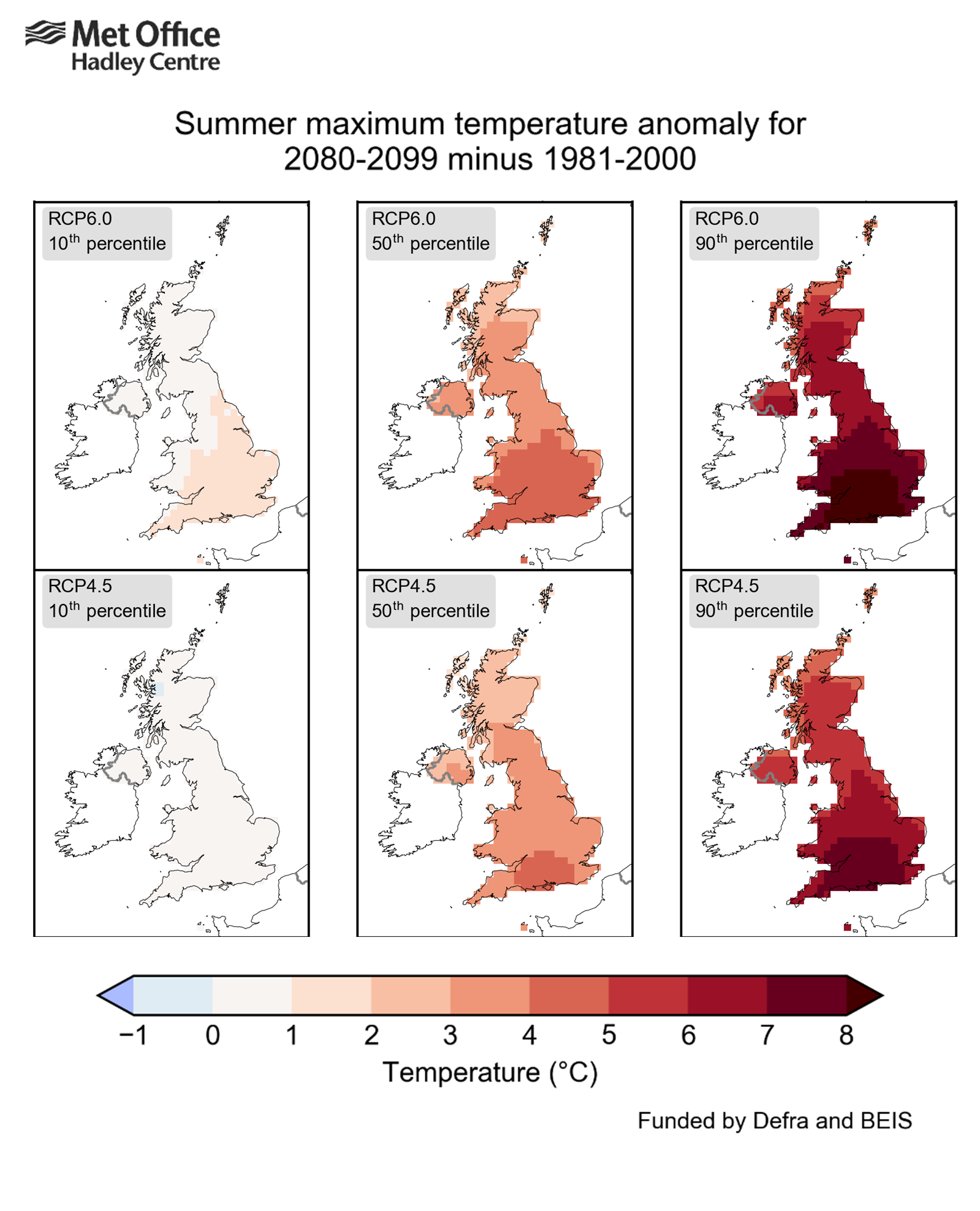Heatwaves: How can our health and care systems build resilience to them?
The UK is experiencing some of its hottest weather on record, and global warming means that these periods will only become more frequent – we discuss how UK public services are impacted by heatwaves and how we can build resilience to climate risk.
This week, for the first time, the Met Office and UK Health Security Agency declared a level four "heat-health" alert, which the government treats as a "national emergency".
They have each issued their respective highest levels of warning, reflecting the dangers faced by health and social care systems as well as the general population. High temperatures of this magnitude may cause illness and death among fit and healthy people, in addition to at-risk groups.
As climate change leads to hotter summers and more frequent heatwaves, we look at the impact on our health and social care systems and how we can build resilience to climate risks.

What are the effects of heatwaves?
Heatwaves can have negative impacts on people's health and make it more difficult to deliver health and social care.
Higher temperatures affect our blood pressure, fluid levels and heart rate which can lead to heat exhaustion or, more seriously, heat stroke. More severe health effects include worsened respiratory conditions and increased chances of heart attacks or strokes. In 2020, three heatwaves caused an estimated 2,556 excess deaths across the UK.
Heatwaves can cause illness and death among even fit and healthy people. However, the following groups are especially vulnerable to the health impacts of high temperatures:
- elderly people, particularly those who live alone and/or suffer from dementia
- people with existing respiratory or cardiovascular conditions
- people with severe physical or mental illnesses, and those taking multiple medications
- babies and young children
Heatwaves also negatively affect health and care delivery. Hospitals in the UK are relatively old and were not designed for the high temperatures which are increasingly common. NHS Trusts in England reported 4,131 overheating incidents in 2020/21, where ward temperatures rose above 26C - and almost half of all Trusts experienced at least one such incident.
These incidents will only become more common: in the August 2020 heatwave the UK reached a maximum temperature of 36.4 degrees, whereas this week temperatures are projected to exceed 40 degrees. Overheating in hospitals is therefore likely to become more severe and lead to dehydration in patients and staff, electricity supply interruptions, and equipment failures - with some Trusts already experiencing these effects this week.
Heatwaves also increase pressure on emergency care. Over the last week the London Ambulance Service has already reported higher levels of calls, which it expects to increase further during the hottest days. The South Western Ambulance Service issued a black alert, representing "extreme pressure". High anticipated demand for emergency care has led some hospitals to cancel routine appointments and non-urgent surgeries, while others have declared critical incidents.
How does climate change affect heatwaves, and how will it get worse?
We are already feeling the impact of climate change, as the average temperature in the UK has increased by almost 1 degree in the last decade. England and Wales now face 1,780 more heat-related hospital admissions per summer compared to 2010.
However, this impact will worsen: heatwaves will become increasingly frequent and increasingly severe. By the 2080s, the average maximum temperature reached per day during summer is predicted to increase between 2 and 7 degrees across England, with worst-case scenarios predicting increases of over 8 degrees in the south of the country.
This increase in temperatures will have important health impacts. Research predicts heat-related deaths to triple by the 2080s, to ~14 deaths per 100,000 people in the UK. This will particularly impact the South East, with ~23 deaths per 100,000.

Met Office projections under different greenhouse gas scenarios (RCP 4.5 and RCP 6.0)
How can we build resilience to climate risks?
As climate change becomes a major driver of human health, health and social care systems will need to build their resilience to climate risks such as heatwaves.
Health and social care systems will need to consider:
- How to respond to sharp increases in demand for urgent and emergency care during heatwaves, as A&E and urgent treatment centre attendances will rise, and demand for ambulance services will increase.
- How to meet the increasing demand for care for long-term conditions - particularly respiratory and cardiovascular conditions, as people suffering from these will feel the impact of heat more strongly. The community setting in particular is likely to face a growing burden of care.
- How to avoid overheating in hospitals and other care settings. In the short term, this will mean ensuring proper ventilation and cooling systems, and taking measures to prevent dehydration of staff and patients. In the long term, this will mean building new hospitals which are suitable for warmer temperatures (starting with air conditioning).
- How to plan for and respond to public health emergencies, and in particular heatwaves, building on the Heatwave Plan.
It will be important to work closely with other system partners including local authorities to build resilience. For example, ~20% of English dwellings are at risk of overheating, so addressing the issue of poor quality housing will help prevent people suffering from heat related illness and needing medical care.
In parallel, the NHS will need to continue to take steps to meet Carbon Net Zero targets, to mitigate as much as possible the future effects of climate change on health.
At The PSC, we help health and care systems make future-proof strategic decisions. We like to help Trusts and systems think through the implications of climate change and build resilience to climate risks. If you would like to discuss this or anything else in this article please get in touch with Charlotte.Bambridge@thepsc.co.uk.
Authors: Marie Ducroizet-Boitaud, Dan Hall, Charlotte Bambridge and Samuel Rose for The PSC Sustainability Team
Latest News & Insights.

What does a good net zero programme look like for Integrated Care Systems?
The NHS has committed to reaching net zero in 2045 and Integrated Care Systems…

The PSC Wins Double Silver at the HSJ Partnership Awards 2024
We are delighted to announce that we have been awarded double silver at The HSJ…

National knowledge transfer and skills building programme for 50 mental health NHS Trusts to improve equity of experience for detained patients
In the year to March 2022, black people were almost 5 times as likely as white…